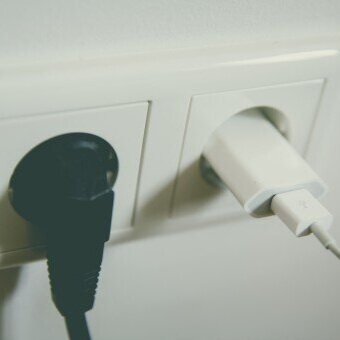Can An Electrical Outlet Cause Fire If Nothing Is Plugged In?
Thousands of residential fires are reported every year across the country, and electrical failure remains the root cause behind several such incidences. Almost every electrical outlet in a home is plugged with power strips or several other electrical devices and appliances. Faulty electrical outlets, obsolete wiring, outdated appliances, or faulty receptacles and switches can result in fire.
There is an increased risk of accidents when homeowners avoid performing routine maintenance and scheduling safety checks with a certified electrician.
Why do electrical outlets heat up?
Sometimes homeowners come across outlets that are too hot to touch even when nothing is plugged into them. A hot outlet indicates an issue that requires immediate attention. It can happen due to loose or corroded wires, wetness, or unplugging something from an overloaded outlet, and may even result in a fire.
If the outlets are wired correctly, have been tightly secured, and stand in perfect condition, the chances of it catching fire are bleak.
There are a few additional reasons the outlets become hot:
What has been plugged into the outlet?
An outlet can become warm when used for electrical devices or appliances that have transformers to change the voltage output. If it remains warm even after the products have been unplugged, the outlet will have to be replaced.
Overloading
If there are too many appliances or devices plugged into an outlet, it can get too hot to touch. It happens when the circuit is overloaded with more current than it is designed to handle.
Faulty wiring
Worn out or wrong-sized wires can cause outlets to overheat and turn into a fire hazard. An electrician can identify the source of the problems and resolve them to eliminate risk.
Dimmer switches
Dimmer switches are most likely to turn hotter than the usual outlets. But, if they are too hot to touch, get them inspected by an electrician.
Old and outdated materials
If the house is old, the outlets may need replacement due to aging. An outlet that appears broken, chipped, or cracked should be replaced before it is used any further.
Ways to prevent outlets from overheating
Avoid using too many power strips
Get the wiring checked by an electrician
Check the chargers of the electrical devices
Avoid overloading the circuit
There have been significant technological advancements in the ways modern outlets are manufactured. When the same amperage breaker protects them, they are unlikely to cause a fire. Still, if an outlet is hot for a long time even after unplugging the device or appliance, turn off the circuit breaker, and call an electrician for an inspection. Electricity is dangerous, and all types of repairs should only be left to experts.
RSB Electrical offers electrical appliance wiring, porch light installation, chandelier installation, and smoke detector installation services in Mesa, AZ. We also specialize in outdoor lighting installation, electrical retrofitting, and new home wiring. Call 480-485-4284 for more information.

